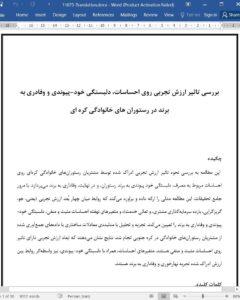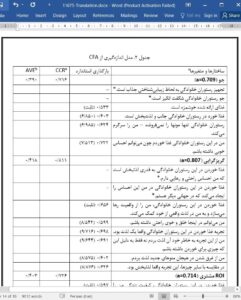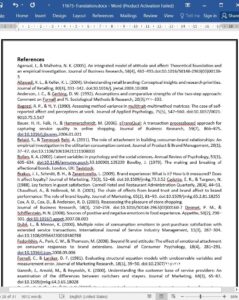ABSTRACT
This study examines how experiential value as perceived by customers of Korean family restaurants influences consumption emotions, self-connective attachment to the restaurant brand, and, ultimately, brand loyalty. Having conducted a comprehensive literature review, the study proposes and estimates a model that specifies the interrelationships among four dimensions of experiential value (i.e., atmosphere, escapism, customer return on investment, and service excellence), and latent variables of positive and negative emotions, self-connective attachment, and brand loyalty. Analysis with structural equation modeling was conducted with data collected from customers of family restaurants in South Korea. The results show that dimensions of experiential value influence either positive or negative emotions. The emotion variables, together with self-connective attachment, also mediate the relationships between perceived value of dining experience and brand loyalty.
Introduction
The concept of experiential value refers to “a customer’s perceptions of value arising from the consumption experience” (Jin, Line, & Goh, 2013, p. 680). While the influences of experiential value have been considered in various retail contexts (Keng, Huang, Zhang, & Hsu, 2007; Mathwick, Malhotra, & Rigdon, 2001, 2002), interest in this phenomenon has recently been extended to the context of dining behavior (Jin et al., 2013; Wu & Liang, 2009). A restaurant is a place where people not only eat but interact socially, where they are entertained, celebrate a special day with family or close friends, or relax and refresh from their daily life. All these restaurant experiences make experiential value concept very relevant to study the total dining experience in a restaurant consumption setting (Jin et al., 2013; Oh, Lee, Kim, & Shin, 2015). It has been suggested that the experiential value is derived from perceptions of restaurant ambience, escape from routine, quality of service, and overall evaluation of whether the experience is worth time and money spent. These dimensions of value, often termed as atmosphere/aesthetics, escapism, service excellence, and customer return on investment, are essential to building and maintaining positive relationships (e.g., satisfaction and trust) with restaurant customers, which result in a high level of behavioral loyalty (Jin et al., 2013; Keng et al., 2007; Wu & Liang, 2009).










